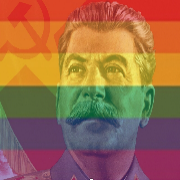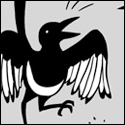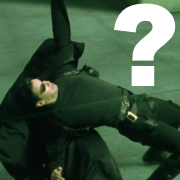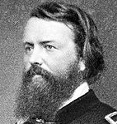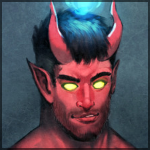|
Is Flight of the Eisenstein worth reading? I skipped it awhile back.
|
|
|
|

|
| # ? May 9, 2024 07:08 |
|
Pyrolocutus posted:Really? I always thought Tzeentch was supposed to be aligned with the concept of hope, that you can change yourself and what's around you.
|
|
|
|
Arquinsiel posted:Well I'm just paraphrasing an old WHFRP blurb about Nurgle. He really is about hope. Nurgle is not so much hope but acceptance of the situation. The village praying to Nurgle are praying for survival as opposed to praying for the situation to change. He's also universally recognised as the nicest of the Chaos gods so Nurgle probably would grant that village's prayer and make sure they all survived by infecting them with an even worse plague that gives them super strong scabs or something UberJumper posted:Is Flight of the Eisenstein worth reading? I skipped it awhile back. No
|
|
|
|
Kegslayer posted:Nurgle is not so much hope but acceptance of the situation. The village praying to Nurgle are praying for survival as opposed to praying for the situation to change. He's also universally recognised as the nicest of the Chaos gods so Nurgle probably would grant that village's prayer and make sure they all survived This is pretty much how I understand it. If you wanted actual hope you'd be praying to Tzeentch, which would be more of a coin flip but has at least the possibility of him deciding to help you triumph... at least for the moment. Reminding everyone of the good aspects that the Chaos gods are supposed to evoke as well would be a really welcome thing but I don't see that happening. Meanwhile all the Imperium factions have this weird thing going on where the crushingly negative aspects of the Imperium are technically there on the page as words and stuff but everyone, even the authors framing it through the meta fluff, seem to unironically present it as a net good. The only thing I can think of is that they're consciously marketing to wannabe fascists, and given the demographic as being teenaged white males that's depressingly likely to actually be the case.
|
|
|
|
JerryLee posted:Meanwhile all the Imperium factions have this weird thing going on where the crushingly negative aspects of the Imperium are technically there on the page as words and stuff but everyone, even the authors framing it through the meta fluff, seem to unironically present it as a net good. The only thing I can think of is that they're consciously marketing to wannabe fascists, and given the demographic as being teenaged white males that's depressingly likely to actually be the case. I think this is a really interesting point and I'm glad you brought it up. Now, I think there is definitely an undercurrent of fascism that appeals to the core fanbase - but we aren't the core fanbase, as we are not 15 year old males with huge amounts of disposable income. We all know 15 year old boys are basically horrible people, and getting into why that is the case isn't a good use of this thread. Instead I'd like to start a conversation about fascism in sci-fi in general and 40k in particular. Fascism has a long, sad history of being presented positively in science fiction (Ender's Game, (Futurism source: http://en.wikipedia.org/wiki/Futurism#Futurism_in_the_1920s_and_1930s ) Ok, now here's something I'd like you to read: Dr. Lawrence Britt posted:
Source: http://rense.com/general37/char.htm Now you're probably reading this and thinking "yes, this describes the grim darkness of the far future pretty well," although obviously some stuff doesn't really apply, such as the whole 'elections' business, and corporate power is more equivalent to Mechanicus power, and there really isn't a disdain for intellectuals and the arts as only the rich and powerful get to enjoy them. One of the defining aspects of fascism is the constant violence, either external or internal (usually both). Also, the violence is an end in and of itself, not a means to an end. What's the tagline for the whole 40k line? "In the grim darkness of the far future, there is ONLY WAR!" Only war. Only violence. And as most will tell you, the Imperium is presented as the least bad option among many terrible ones. The whole thing is a dark joke, set up to show just how bad things have to be for fascists to be the good guys. It's sad when authors forget that there is supposed to be an undercurrent of black, black humor in the fluff. Ok, now I'd like you to read this article about the original Warhammer 40k book. http://1d4chan.org/wiki/Rogue_Trader_%28Sourcebook%29 So, a British company in the 80s makes a new setting. What was going on then? What was happening? What would they be inspired by? Thatcherism. Now as much as I'd like to claim this idea as my own, I think it was someone from this very thread who originally suggested it. The massive repression of the setting, especially repression of an individual's identity, rights, and potential, can and I think should be read as a dark laugh at Thatcherite philosophy. Now let's get into the 'why' of fascism. What is it's dark appeal that makes it work so well for sci-fi? I think since fascism is essentially an ideological fantasy, with ubermenschen struggling heroically against the eternal, evil other, it fits nearly perfectly into the old hero's journey myth structure, and hence nearly all of fiction. Add in the other overarching themes of 40k fiction (fear of the xenos, technological stagnation, religious fanaticism, etc.) and you have a setting that really couldn't be presented as anything other than fascist. God this post is a bit of a mess. I hope I've expressed my thoughts clearly enough. Anyone have anything to add or object to? VanSandman fucked around with this message at 02:39 on Jul 25, 2013 |
|
|
|
Funny, by none of those standards does Heinlein present a fascist society, let alone positively.
|
|
|
|
You could argue that the similarities are actually due to parallel development. Fascism was very much a backwards-looking ideology that specifically idolized a mythic pre-Modern past. 40k is self-consciously written as a caricature of the Dark Ages as popularly conceived at the time, which is somewhat less so in modern conceptions, where the Medieval era was considered a massive step back from the idolized era of classical enlightenment. On the other hand, the elements of 40k are specifically set up to (satirically) set up all the crazy claims of fascist government as actually true in-universe. For instance, the eternal war with subhuman foes that irrationally hate their civilization? Check - most aliens in 40k really are completely inhuman and incapable of peaceful coexistence with humanity. Even the relatively intelligent and peaceful (to themselves) Eldar consider humanity to be a worthless and annoying animal. Constant threat from internal sources? Check - rogue psykers can actually destroy entire worlds if left unchecked. Also posting the standard essay on Fascism by Umberto Eco: http://www.themodernword.com/eco/eco_blackshirt.html
|
|
|
|
mllaneza posted:Funny, by none of those standards does Heinlein present a fascist society, let alone positively. Heinlein was a tremendous contrarian and borderline troll all his life. Starship Troopers is his reaction (or overreaction) to the anti-militarist movement amongst the intellectual circles of the day. His later works are even more transgressive and weird, but this time in the psychosexual dimension. Heinlein was duly committed to high weirdness and outrageousness in sci-fi and I respect him for that.
|
|
|
|
JerryLee posted:This is pretty much how I understand it. If you wanted actual hope you'd be praying to Tzeentch, which would be more of a coin flip but has at least the possibility of him deciding to help you triumph... at least for the moment. I liked the idea presented in the First Heretic that the Chaos gods are the 'truth' in the universe and that following and worshiping them is the 'right' thing to do. It's people like the Emperor and the other anti-Chaos races that are the heretics. It just so happens that the gods are terrible beings and so demand terrible things to be done in their name. In terms of the marketing, the lore in 40k use to be pretty hardcore 80s but a lot of the story has been dropped to present it better to a mainstream audience. I don't think they're marketing it to wannabe fascists but just teenagers who like space guns and killing aliens. A Space Marine is presented as a self sacrificial heroic space man on the tabletop and in most of the fiction instead of a emotionally stunted soldier who was kidnapped and indoctrinated as a child into becoming a genetically altered, chemically castrated psychopath.
|
|
|
|
Cream_Filling posted:Heinlein was a tremendous contrarian and borderline troll all his life. Starship Troopers is his reaction (or overreaction) to the anti-militarist movement amongst the intellectual circles of the day. His later works are even more transgressive and weird, but this time in the psychosexual dimension. Heinlein was duly committed to high weirdness and outrageousness in sci-fi and I respect him for that. Ah well, I'll bow to your expertise then. All I know about Heinlein I learned from watching the director's commentary on Starship Troopers.
|
|
|
|
VanSandman posted:Thatcherism. Now as much as I'd like to claim this idea as my own, I think it was someone from this very thread who originally suggested it.
|
|
|
|
VanSandman posted:Ah well, I'll bow to your expertise then. All I know about Heinlein I learned from watching the director's commentary on Starship Troopers. Yeah I like Paul Verhoeven a lot but I don't like his treatment of the book in that case. Also, it's not even all that inaccurate to describe Starship Troopers as quasi-fascist or anything like that. It's a pretty mainstream and defensible interpretation. I just personally have a different take on it because I have a soft spot for Heinlein.
|
|
|
|
I always interpreted it as a positive presentation of a fascist society with all of the negative parts conveniently left out to make a point.
|
|
|
|
Cream_Filling posted:Check - most aliens in 40k really are completely inhuman and incapable of peaceful coexistence with humanity. I question the objective truth of this, as far as that makes any sense to say about something in the 40K fluff. It's definitely the Imperial perspective and they can certainly point to several of the major examples that we all know from the tabletop game as their substantiating evidence--Orks, Dark Eldar, Necrons, Tyranids. On the other hand, you have the Tau, who can be said to coexist with humanity; maybe not with the Imperium, but those aren't the same thing unless your ideology presupposes that they are (which the Imperium's does, natch, but ours doesn't have to). Likewise it's my understanding that there are any number of alien species that got purged in the Crusade that weren't antithetical to humanity as a species. The Great Crusade is sort of a self-fulfilling prophecy--why are we crusading? To make the galaxy safe for humanity. Why is the galaxy unsafe for humanity? Because we pissed it off. If the Imperium in general is a satire of fascism, then the Crusade specifically is a satire of "we have to fight them over there so we don't fight them over here," which VanSandman already alluded to as a general case but I'm just showing that you can put a finer point on as well. It's especially interesting in light of the fact that the Horus Heresy series, aka the first focused, somewhat narratively objective look at the Great Crusade era, started up well after Iraq and Afghanistan were things. If oldschool 40K was for 80s, Thatcherite Britain, the treatment of its 30K roots might be a refinement for the post 9/11 era--with, of course, still enough room for the 15-year-old proto-fascists to not acknowledge it if they don't want to. Obligatory Arquinsiel posted:I always interpreted it as a positive presentation of a fascist society with all of the negative parts conveniently left out to make a point. Well, like I said, that's the thing--most of the negative parts are there on the page, but usually nobody, either the loyalist characters in the books or the narrators writing them, acknowledge it (though one hopes that the less repulsive writers like Abnett and ADB are at least fully self-aware about it).
|
|
|
|
JerryLee posted:Well, like I said, that's the thing--most of the negative parts are there on the page, but usually nobody, either the loyalist characters in the books or the narrators writing them, acknowledge it (though one hopes that the less repulsive writers like Abnett and ADB are at least fully self-aware about it). ADB certainly knows about it. His Night Lords series does a drat fine job of painting an Imperium that is only marginally less horrible than the Night Lords themselves.
|
|
|
|
JerryLee posted:I question the objective truth of this, as far as that makes any sense to say about something in the 40K fluff. It's definitely the Imperial perspective and they can certainly point to several of the major examples that we all know from the tabletop game as their substantiating evidence--Orks, Dark Eldar, Necrons, Tyranids. On the other hand, you have the Tau, who can be said to coexist with humanity; maybe not with the Imperium, but those aren't the same thing unless your ideology presupposes that they are (which the Imperium's does, natch, but ours doesn't have to). Likewise it's my understanding that there are any number of alien species that got purged in the Crusade that weren't antithetical to humanity as a species. The Great Crusade is sort of a self-fulfilling prophecy--why are we crusading? To make the galaxy safe for humanity. Why is the galaxy unsafe for humanity? Because we pissed it off. Eh, the Tau are implied to be pretty evil, too. It's just that their fluff is presented from their own perspective just like the Imperium's, but there's a whole lot less of it so it's only vaguely alluded to that they're not actually the nice guys they claim to be at all. It's also implied that there may have been some level of communication or even interaction back in the Dark Age of technology, but that since then there was a whole lot of opportunistic predation and betrayal of humanity overall by other aliens once humanity weakened. I actually prefer to think that all aliens that aren't completely powerless are antithetical to human life, because I'm sick of sci-fi aliens and fantasy races which are just a bad parallel for scientific racism from like 100 years ago. A truly alien being would most likely be unable to coexist peacefully with humanity in anything more than a tense truce and active avoidance - like a person and a wild animal. Hell, humanity can barely coexist with itself. That said, I hope this idea is kept unresolved so it's never quite sure how much of it is true or not. OXBALLS DOT COM fucked around with this message at 03:31 on Jul 25, 2013 |
|
|
|
JerryLee posted:Well, like I said, that's the thing--most of the negative parts are there on the page, but usually nobody, either the loyalist characters in the books or the narrators writing them, acknowledge it (though one hopes that the less repulsive writers like Abnett and ADB are at least fully self-aware about it).
|
|
|
|
Cream_Filling posted:Eh, the Tau are implied to be pretty evil, too. It's just that their fluff is presented from their own perspective just like the Imperium's, but there's a whole lot less of it so it's only vaguely alluded to that they're not actually the nice guys they claim to be at all. Eh, zero argument with the evil parts of their culture--I don't uncritically accept the Tau's self-descriptions at all--but they are objectively better at assimilating alien species into their empire than the Imperium is/was. Same goes for Chaos, really.
|
|
|
|
JerryLee posted:Eh, zero argument with the evil parts of their culture--I don't uncritically accept the Tau's self-descriptions at all--but they are objectively better at assimilating alien species into their empire than the Imperium is/was. Same goes for Chaos, really. Well, assimilating and exploiting. And meanwhile it's very clear that the tau run everything. Oftentimes their idea of "assimilation" seems to consist of mind-control and possibly even genetic manipulation to create slave races. More importantly, it seems like the tau may have no concept of free will at all. If so, how can they coexist in a way that's not a constant threat? Also, if the tau ever learn the true nature of chaos, it's quite possible that they will freak out and try to wipe out humanity anyway.
|
|
|
|
It's fairly explicit in the fluff that the Tau practice (slow and discreet) mass sterilisation of their less desirable assimilated aliens. Such as humans.
|
|
|
|
JerryLee posted:Meanwhile all the Imperium factions have this weird thing going on where the crushingly negative aspects of the Imperium are technically there on the page as words and stuff but everyone, even the authors framing it through the meta fluff, seem to unironically present it as a net good. The only thing I can think of is that they're consciously marketing to wannabe fascists, and given the demographic as being teenaged white males that's depressingly likely to actually be the case. I don't really see this. Even in the Heresy books they go out of their way to show how even the pre-fall Imperium was a horrible autocracy under the surface. The only thing that redeems it was the chance that it might not be a horrible autocracy at some point in the future.
|
|
|
|
To take the Night Lords example again, they tortured billions to death by the time anyone thought to ask them to maybe tone it down a little bit.
|
|
|
|
Arquinsiel posted:I always interpreted it as a positive presentation of a fascist society with all of the negative parts conveniently left out to make a point. Arquinsiel posted:Sorry, should have quoted to show that I meant Starship Troopers there. 40k explicitely goes into detail about how lovely fascism is if you bother to look. Starship Troopers makes it looks viable. Does it occur to you that maybe the reason it doesn't show any aspects of fascism (pop, poli-sci, or econ) is because it isn't fascist? Cream_Filling posted:Yeah I like Paul Verhoeven a lot but I don't like his treatment of the book in that case. quote:Also, it's not even all that inaccurate to describe Starship Troopers as quasi-fascist or anything like that. It's a pretty mainstream and defensible interpretation. I just personally have a different take on it because I have a soft spot for Heinlein. I've long been toying with the idea of doing a Let's Read of some core Mil-SF (SST, Forever War, Old Man's War) to talk themes like this. I should really sit down and do that thread some day. Fried Chicken fucked around with this message at 05:42 on Jul 25, 2013 |
|
|
|
JerryLee posted:
Wrath of Iron is a pretty good book when it comes to showing how terrible the Space Marines and the Imperium are if you aren't part of the elite that agree with them. It's probably my favourite of the Space Marines Battles books and I hope Chris Wraight does another Iron Hands book.
|
|
|
|
Fried Chicken posted:It's popular since the film. It really is not defensible based on the text. You can't even argue it is authoritarian. For one, there is simply not enough there. It doesn't go in to the political system, much less the economic system or class system enough to say anything at all about the society. So far as SST talks about class or economics, the elder Mr. Rico owned his own business despite not being a "citizen". That's not terribly repressed, if at all. I'd support that Lets Read. Start with SST, and lets have some David Drake in there too. If we go by chapter (or short story) it won't take too long to get into the meat of it.
|
|
|
|
Improbable Lobster posted:Wrath of Iron is a pretty good book when it comes to showing how terrible the Space Marines and the Imperium are if you aren't part of the elite that agree with them. It's probably my favourite of the Space Marines Battles books and I hope Chris Wraight does another Iron Hands book. Argh I can't believe I forgot Wrath of Iron. It's such a good example of "Everything is poo poo. Heroism is madness. Sanity is a non-viable survival trait. Hope is for fools." while still being a good story. I like it when Marines are portrayed as completely crazy from the point of view of, well, everyone else. Wraight does this in a short story too - Kraken. An old Space Wolf goes hunting, and scares the poo poo out of everyone he meets.
|
|
|
|
EFried Chicken posted:So it shows none of the traits of fascism, therefore it must be a positive portrayal of fascism? I think there are elements of fascism in a lot of Heinlein's work, but I would say it's rare to see them explicitly. Starship Troopers is certainly not one where it's absolutely a prominent theme, though does hit some of those boxes. Heinlein's most depressingly obvious trait is his bloody reddit-neck beard-libertarianism, which makes re-reads of one of my favourite novels (the moon is a harsh mistress) pretty tough. Like most classic sci-fi, though, theres a lot of Heinlein beyond the good stuff. The truly fascist Heinlein novels are ones that don't see reprints - The Day After Tomorrow being a good example. The tag line on the back of my copy is 'the whole of Asia-that's three billion people- is in danger from all of America - that's precisely six men!'. It is absolutely hideously racist in thought and deed. The six men left of America are let by an authorial insert of an übermensch, who basically leads a team of scientists able to kill anyone with Asian ancestry. Wacky racist bikinis ensue! That is some poo poo that makes the imperium look like non racist benevolent overlords.
|
|
|
|
mllaneza posted:So far as SST talks about class or economics, the elder Mr. Rico owned his own business despite not being a "citizen". That's not terribly repressed, if at all. My thought was start with SST, then Forever War, then Old Man's war, because (1) They chronologically progress through America's evolving viewpoint on war, with WW2/Korea giving way to Vietnam giving way to our current paradigm of an overarching war fought as a series of independent actions (2) Forever War is a rebuttal to SST, and Old Man's War to both. Some Drake short stories would be good since he provides the perspective of someone who has come back from war writing about it to deal with the effects of it. Ringo and Weber have been pretty heavily covered elsewhere, and I hate their work, but I guess I should have something by them. I guess Ender's Game should pop up in it (it is short enough maybe use it like the short stories, as some kind of intermission). I should probably also do one of the Star Wars prequel books simply as an exercise of what it is like when it actually is a positive presentation of a fascist society with all of the negative parts conveniently left out. The Clonetroopers are a genocidal fascist force that are presented as the good guys. That is ripe for deconstruction. And If I really want to be thorough it should probably broach The Loyal Subject for how it handles creeping militarization and coming fascism so I can do a comparison of themes. To get this back on 40K stuff, here is a write up I did a while back for somewhere (here? Reddit?) where I tried to deconstruct Horus' fall and explain it quote:The fall of Horus manages to make the fall of Anakin Skywalker look well done. It was pretty bad, largely stemming from the fact that every author to write him has reflected his fall in different way and having the fall be from Horus’ own decisions, Horus’ nature, Chaos’ lies, and Chaos’ possession to different degrees. They also use different symbolism to reflect the fall, like the cholers and humors and such, which really doesn’t work too well because again you had multiple people trying to use the same symbols and each employed them differently Still, the brainstorming sessions clearly did something because there is enough of an overlap that you can piece together at least a coherent set of motivations so long as you don’t focus too much on the details. The story of the Fall of Horus is really three intertwined corruptions – Horus Lupercal, his Legion, and Eugen Temba.
|
|
|
|
lenoon posted:E I won't defend the racism in Heinlein's work - the best anyone can do is Charles Stross' commentary quote:Now, I have a love/hate relationship with Robert A. Heinlein's work. I am not American; much of his world-view is alien to me. I did not grow up with his 1950's juvenile novels, and I don't like them much. Some of his work is deeply, irredeemably flawed and should probably be taken out back and shot. (Does anyone have a kind word to say for "Sixth Column" or "Farnham's Freehold"? I'll try: 6thC was written to an outline supplied by famously racist editor John W. Campbell, at a point when Heinlein needed the money, and he is alleged to have watered down the racism as far as he could; as for FF, here was a privileged white male from California, a notoriously exclusionary state, trying to understand American racism in the pre-Martin Luther King era. And getting it wrong for facepalm values of wrong, so wrong he wasn't even on the right map ... but at least he wasn't ignoring it.) Ahem. Nevertheless, it's impossible to ignore Heinlein unless you're going to ignore all American SF, and as that's my main market and my main publishers are American, that's not an option. And I drat well won't defend libertarian-ism - a review of my D&D posts should make it clear exactly what a low opinion if have of the Chicago School, neo-Confederate ideologues, and their full throated defense of fascism (often openly violent fascism!) by terming it "economic freedom". But I do think that works should be judged as independent of the author, and unless explicitly linked, independent of each other. And on that ground there simply isn't anything to say Starship Troopers is fascist. I'll stop for now. I have family coming in tomorrow and a job interview Tuesday, but I'll try to have that Let's Read for this up after that. I don't have PMs, but I'll be idling in IRC ( synirc.net, #acolyte since that is the goon 40k room) if anyone wants to pop in with suggested titles and themes to pursue
|
|
|
|
Wrath of Iron was amazing.  , but wonderfully plotted. , but wonderfully plotted.
|
|
|
|
Cream_Filling posted:Eh, the Tau are implied to be pretty evil, too. It's just that their fluff is presented from their own perspective just like the Imperium's, but there's a whole lot less of it so it's only vaguely alluded to that they're not actually the nice guys they claim to be at all. I also like the idea that there is something to contrast with the Imperium. The Tau more closely resemble what humanity was before the Age of Strife. Most of the fluff on the Imperium is written from the Imperium's point of view, and thus it is written as if the Imperium's hardships are all the fault of aliens and heretics and that everything cruel they do is absolutely necessary. Baron Bifford fucked around with this message at 08:14 on Jul 25, 2013 |
|
|
|
I'm yet to read a Tau book that favors the Tau as a less crazy Imperium so far. Like Greater Good. They need to find Cain because of an incoming 'Nid threat. So what do they do to find him? Rail gun blitzkrieg motha fuckas! The whole scene is written as "are you Cain?" Boom! "How about you...Are you Cain?" Granted I don't play the table top game so all that codex stuff thats not in the wiki's is pretty much lost knowledge to me.
|
|
|
|
Yeah I'm not sure why anyone still thinks the Tau are particularly good. They pretend to be good but they're really just a bunch of brain washed slave races serving whatever the ethereals are.
|
|
|
|
The point was never that the Tau are squeaky clean but that they manage to be more appealing for humans to live under according to a number of metrics.
|
|
|
|
The Tau Empire is a fascist secular state, centered around absolute obedience to the Ethereal Tau subspecies, adherence to the laid down code of the Greater Good (lit. "The Tau Way"), and a strict caste system. It's only appealing for human worlds to join it in so far as they get culturally assimilated, through being out on the fringe and away from stronger Imperial cultural and economic centers, and by the Tau Empire's ability to project force. It becomes a bit of a case of putting up new banners, that between being ruled by the distant Imperium or the closer Empire. The Tau are not at all better than the Imperium, and they've only managed to survive through a mix of fortunate circumstances and due to being too young to attract the attention of bigger enemies - what we're looking at the end of the 41st millenium is the Tau golden age, when they're expanding their borders faster than ever, and it's only a small centuries-old blip that can be casually snuffed out, and would have been during the Damocles Gulf Crusade had a new Black Crusade not started.
|
|
|
|
UberJumper posted:Is Flight of the Eisenstein worth reading? I skipped it awhile back. Not the best book but I think its worth a read, few good fights and lots of juicy lore.
|
|
|
|
CreepyGuy9000 posted:Not the best book but I think its worth a read, few good fights and lots of juicy lore. I agree with this. Its definately not the worst. Its just compared to the other novels, it has the least impact on the overall storyline. They build up Garro as the man who is loyal to the empire to the point that he tells Horus and his entire legion to go gently caress themselves and then regulate him to audiobook status and is never heard from again. I kinda liked the book but am disappointed that I grew to like Garro just to find out I'll never read another book about him unless they do novel versions of their audiobooks.
|
|
|
|
I still don't understand why they've relegated the continuation of the Loken storyline to the lovely audiobooks. I know they probably think it'll make them more money but is it really? I imagine there'll be a compilation book out sometime, but it'll be immensely frustrating if we get to the Siege of Terra and he just shows up or something.
|
|
|
|
EyeRChris posted:I agree with this. Its definately not the worst. Its just compared to the other novels, it has the least impact on the overall storyline. They build up Garro as the man who is loyal to the empire to the point that he tells Horus and his entire legion to go gently caress themselves and then regulate him to audiobook status and is never heard from again. I kinda liked the book but am disappointed that I grew to like Garro just to find out I'll never read another book about him unless they do novel versions of their audiobooks. I'm in the same boat. I won't do audio books or ebooks (and now I'm refusing to buy those ridiculous oversized paperbacks), so I'm missing a lot of the series. I have no idea what happened to Loken, Garro and I'm missing a chunk of Angron's story. Eisenstein was decent enough. Some glimpses into Mortarion, a bit of Nurgle, some primarch stuff and an important scene as Dorn accepts that Horus has turned It's not ADB, but it isn't Battle for the Abyss either.
|
|
|
|

|
| # ? May 9, 2024 07:08 |
|
Yeah, I liked Eisenstein. You can always buy that 'the scripts' book if you want the audio dramas I guess? That was a good effort post on what Horus' true motivations for falling were, by the way. I think ADB's Master of Mankind should shed some very important light on the Emperor's true motivations as well. There is no doubt that the Emperor is as bad or worse than Horus in how he treats people. The Astronomicon, for instance, is literally powered by forsaken souls. Then there's the whole chastisement of Lorgar. I think the ultimate motivation for Angron's fall can be that, despite the butcher's nails in his head, he truly does care for the well being of regular people. Which is why Betrayer is such a good book. VanSandman fucked around with this message at 13:17 on Jul 25, 2013 |
|
|












